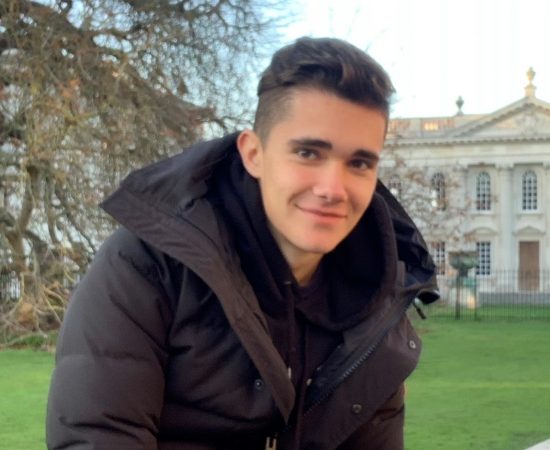
Hi! My name is Danny and I study Chinese (as part of Asian and Middle Eastern Studies) at St Catharine’s College, Cambridge. I have been interested in all things China-related for some time now, and the course offers a year abroad which seemed to me the perfect opportunity to immerse myself in the everyday life of a place I understand so little.
The Asian and Middle Eastern Studies course covers a number of languages including Hebrew, Arabic and Persian, however you have to specialise in one particular language if you are doing Japanese or Chinese. Note also that both Chinese and Japanese require no prior knowledge of the language, and begin ab initio. In a typical week, language classes begin at 9 am most days, which include listening, speaking and writing. High-intensity vocab learning and close following of the textbooks is a defining feature of the first year. Language is explored further in supervisions (which only last an hour) and typically one-on-two sessions solidify some of the bits covered in class, whilst giving you an opportunity to ask questions and ask for more tailored clarification.
Another part to the course which I find incredible is the seminar series offered to both Chinese and Japanese students together where an introduction to history, philosophy, literature and society is presented in manageable chunks by world-leading experts in their respective fields. The calibre and quality of teaching is unrivalled.
The interview process is quite similar to other humanities subjects, however, be prepared to answer some linguistics questions – i.e. questions about Chinese/Japanese script, etc. My experience was different to many of my friends’ insofar as my interviews were two back-to-back conversations, one with the Senior Tutor at my college, where we discussed my Personal Statement, and one with the Director of Studies for Chinese at St. Catharine’s. Although terrified initially, I found that simply speaking my mind, no matter how strange some of the sentences sounded, helped me gain confidence throughout the interview, and come up with ideas that surprised me. Truthfully, many of the things you learnt at A-Level (or Pre-U) will fade into the distance, as your background knowledge around the subject will be tested. It is worth having a good overview of the disciplines mentioned in your Personal Statement, for example if you wrote that you have a particular passion towards “contemporary Chinese literature and art”, digging into a historical overview of both subjects is useful.
Ultimately, the experience with AMES is a progressive one, whereby you will feel great satisfaction in building on what you had learnt before and catch yourself slowly becoming near-fluent at a language you may have struggled with in the past. The historical and cultural components of the course allow for great research opportunities and specialisation in the future, and you will find that your knowledge of the language complements all other areas of study you get involved in. The first-year workload is not the most daunting, and although the intensity is high, the rewards are certainly worthwhile.
